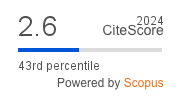Novel Approach for Generating Hybrid Features Set to Effectively Identify Hate Speech
DOI:
https://doi.org/10.4114/intartif.vol23iss66pp97-111Keywords:
Hybrid Features, Deep Learning, Hate Speech, Cyber-bullying, Deep Learning FeaturesAbstract
Automating hate speech or inappropriate text detection in social media and other internet platforms is
gaining a lot of interest and becoming a valuable research topic for both industry and academia in recent years. It
is more important for applications to identify the disruptive contents, understand sentiment analysis, identify cyber
bullying, detect flames, threats, hatred towards people or particular communities or groups etc. Text classification
is a very challenging task due to the nature and complexities with languages, especially its context, micro words,
emojis, typo error and sarcasm present in the text. In this paper, we have proposed a model with a novel approach
for generating hybrid features for an effective feature representation to classify hate speech. We have combined
features learned from deep learning methods with the semantic features like word n-grams and tweets specific
syntactic features to form hybrid feature sets. We have also improvised preprocessing steps to reduce the number
of missing embeddings to increase the vocabulary for efficient feature learning. We have experimented with the
various neural networks for feature learning and machine learning models with hybrid features for classification.
Our work delivers hybrid features and appropriate preprocessing techniques for an efficient classification of the
standard dataset of 16k annotated hate speech tweets. The combination of Long Short Term Memory (LSTM)
trained on Random Embeddings for deep learning features extraction and Logistic Regression (LR) as a classifier
with the hybrid features is found to be the best model and it outperforms the state of the art reported in the
literature.
Downloads
Metrics
Downloads
Published
How to Cite
Issue
Section
License
Copyright (c) 2021 Iberamia & The Authors

This work is licensed under a Creative Commons Attribution-NonCommercial 4.0 International License.
Open Access publishing.
Lic. under Creative Commons CC-BY-NC
Inteligencia Artificial (Ed. IBERAMIA)
ISSN: 1988-3064 (on line).
(C) IBERAMIA & The Authors









